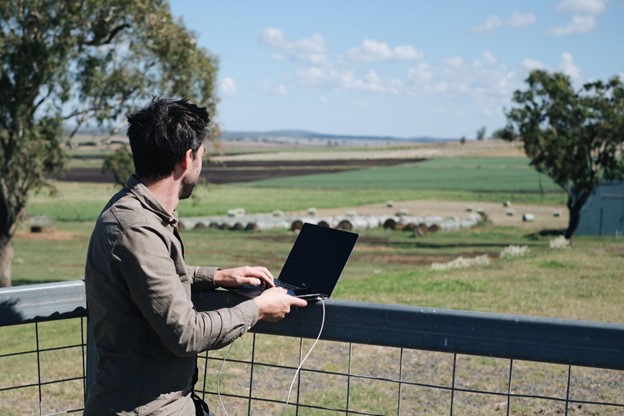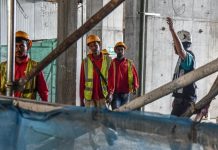The food and agriculture industries are at a crossroads. The rate of change has never been faster and the pressure on our agrifood systems, from climate change to political instabilities, is increasing both in impact and complexity. The need for innovation has never been greater, but the question is, what kind of innovation do we need?
We often kick off our presentations with “Our mission is to sustainably feed the world’s growing population”. A lofty goal, wouldn’t you agree? But it’s not so much that we think we have all the answers, rather that this is what drives us and we know it is of paramount importance to the world.
Of course, we know it will require a large amount of work and investment, and a multitude of solutions to get there. And this sums up the opportunity really nicely. Within this universe of solutions, our goal is to seek out the entrepreneurial champions leading the change, and to back them early.
Indeed, entrepreneurs are key when it comes to accelerating the development and adoption of critical technologies. At Mandalay, we largely look for two founder attributes: the ability, grit and determination to execute, and the knowledge of their industries. Great founders are dissatisfied with the status quo and have a bold vision as to what is required to disrupt this. Moreover, they care. They care about a better and more sustainable future, for all those involved, and for the environment.
That said, in order to make it work, we all need to lean into the opportunity, and for that reason, we ensure that our companies are connected to governments and regulators, to strategic (co-)investors, to universities and research organisations, primary producers and other partners along the value chain, and finally, to the consumer. Transparency is the greatest enabler.
Over the last few years, we have seen an explosion of different types of agrifood technologies. Robotics and IoT, automation, digitisation, plant-, soil-, materials- and food-science have paved the way for farm management systems.
They have done this with data insights, precision agriculture, innovative farm inputs and waste to value solutions, more efficient production and processing systems, climate change resilient crops, and supply chain efficiencies, just to name a few. But the definition extends well beyond these core activities and includes waste to value, waste to energy, agri-fintech, climate tech, and more.
The recent 2022 AgFunder AgriFood Tech Investment Report highlights the breadth of activity from farm to fork, including downstream innovation in distribution, retail and other consumer applications.
The impacts of these innovations can be profound. Australian company Agtuary is a “Know Your Environment KYE” platform, enabling better access to financing in agriculture, and assessments of climate-related risks. Its Thai counterpart Ricult is tangibly helping farmers lift out of poverty. DataFarming is every farmer’s digital agronomist, getting more results and insights from precision agriculture efforts.
Additionally, Rubens and Zondii provide immediate and on-the-spot predictive information about the freshness, ripeness, quality and provenance of agricultural produce. Closer to the consumer, FUL company is developing climate positive healthy drinks from spirulina, Lyre’s is effecting cultural change around alcohol consumption globally, and Haelen’s technology is helping produce the world’s healthiest milk.
One of the great things about being a VC is that we get to meet and learn from so many great innovators and these are just a few examples of what we are seeing in the market right now. In many cases, the technology is relatively mature, but adoption rates are still lagging – due partially to the lack of understanding, but more often, due to time and money to invest in new tech.
This is especially true when talking about farmers (primary producers). In Australia, Rural Research and Development Corporations (RDC) are playing a crucial role to drive innovation and adoption in ag, including AgriFutures and its GrowAG platform. In Southeast Asia, this role is performed by aid and economic development organisations, but with increasing interest and investment from large corporations.
From solutions to systems change
The work is never done. One of the things that excites us the most is that agrifood tech has reached critical mass and it is changing our food systems as a whole…and ultimately for the better. We are seeing entrepreneurs think beyond individual solutions to understanding what is needed more holistically.
Here a three broad areas we believe will continue to transform the industry:
- Whole-of value chain data interoperability and mobility, increasing transparency, efficiency, sustainability and resilience.
- Innovative business models that support, and don’t disadvantage, the most vulnerable parts of the agrifood systems, meaning not only our primary producers but also taking into the environment. Better rural livelihoods and increased recognition of the value of nature.
- Increased sophistication of how to manage opportunities that exist at the nexus of agrifood, climate and sustainability.
There is a surprisingly high amount of skills, knowledge and novel thinking required to get there. Talent and innovation can come from anywhere, but agriculture is characterised by dualities; whilst the latter is true, life on the ground is tough and in most situations access to labour is a big issue.
We are an Australian venture capital fund committed to better collaborative opportunities with Southeast Asia. Understanding the unique challenges of agriculture in different regions is critical to developing successful solutions, but there is great potential to develop innovations that can become global businesses.
We believe there’s a winning combination for businesses that can navigate both landscapes successfully.
This article is written by Philippe Ceulen, Partner at Mandalay Venture Partners















